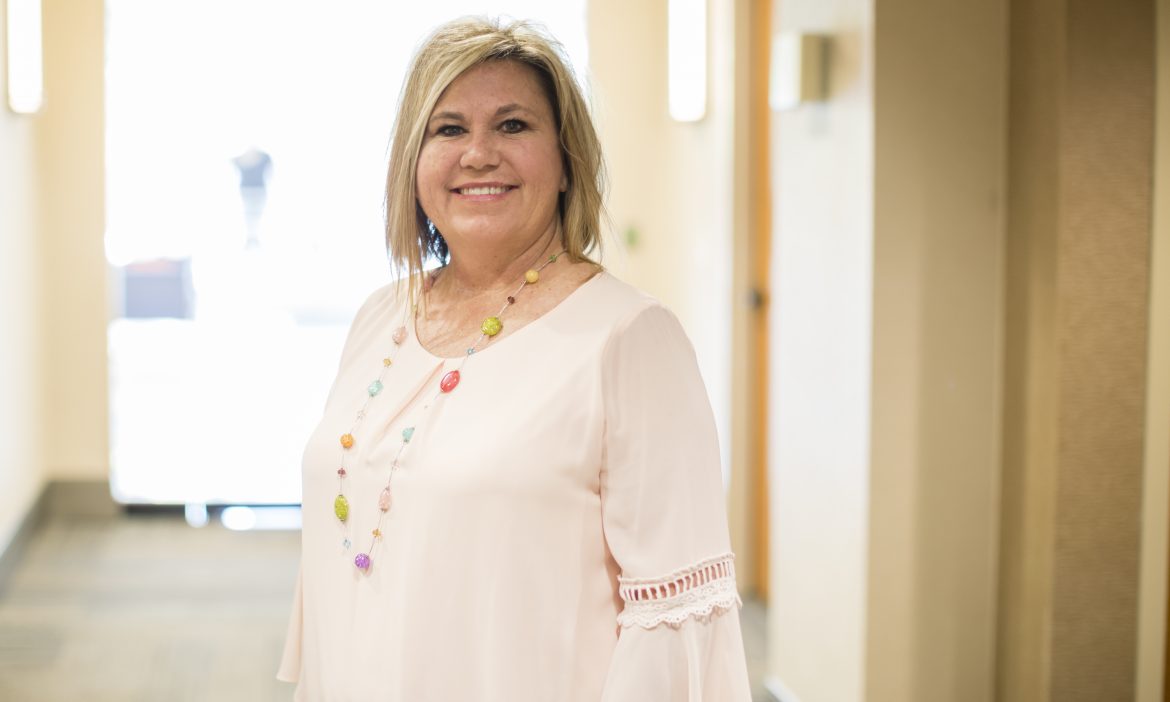If there’s one lesson Kim Hatfield has learned in her four years as a care coordinator, it’s that persistence pays off. When asked for an example, she shares the story of one elderly patient she now considers a friend.
Hatfield is a nurse in a patient-centered medical home, or PCMH practice, which delivers collaborative primary care services. Hatfield is employed by BlueCross BlueShield of Tennessee but works out of the physician’s office to manage ongoing care needs for members — a strategy that improves their quality of life and helps manage health-care costs overall.
“Our connection made it possible for me to help her get the services she needed”
This particular member had developed leg pain and other issues that prevented her from being able to drive; she relied on an out-of-town friend to help her get around. With no nearby family to assist her, she missed many doctors’ appointments — a concern because she was on several high-risk medications.
“I called regularly to check in and make sure this member was okay,” explains Hatfield. “We’d chat about her medications and other concerns.”
At the doctor’s request, Hatfield began reaching out to the member.
After several chats, the patient agreed to keep a visit scheduled in the next month — close to her birthday. Hatfield planned to come to the appointment as well, so she could meet her new friend and give her a birthday present.
A three-year study:
those in a PCMH program had fewer hospital stays
Consistent concern makes a difference
When Hatfield called the patient a week from her scheduled appointment, she couldn’t reach her. After her new friend missed the appointment and their planned meeting, Hatfield feared that something was seriously wrong.
Hatfield finally heard back from the member, who was weakened by a serious illness and unable to answer the phone for days. Hatfield connected with the physician and the patient’s emergency contact; soon the patient was transferred to the hospital where she was diagnosed with pneumonia and dehydration.
“Our connection made it possible for me to help her get the services she needed,” says Hatfield.
After she returned home, the patient allowed Hatfield to set her up with in-home services and meal delivery. Hatfield still regularly calls to check in on her friend.
“This is something my whole BlueCross family of care coordinators does every day,” Hatfield says. “I am so proud to be a part of this team — that is what we do for our patients.”
Better outcomes through coordinated care
Hatfield joined the BlueCross PCMH program in 2012 and is one of more than 50 care coordinators embedded in physicians’ offices across Tennessee. The rapidly growing PCMH program aims to provide highly coordinated, comprehensive care to BlueCross members at all stages of life. Currently, around 1,000 physicians in 30 PCMH-certified practices serve 250,000 members with additional care coordination.
The benefits of this approach are significant: A three-year study recently showed that individuals enrolled in a PCMH program had fewer hospital stays, fewer emergency department visits and lower medical costs overall.
Learn more about how the PCMH approach offers patients better access to quality care and how to connect with these services.

